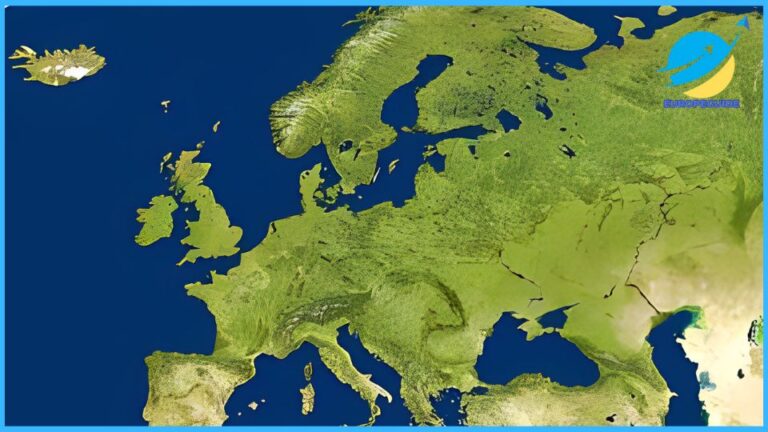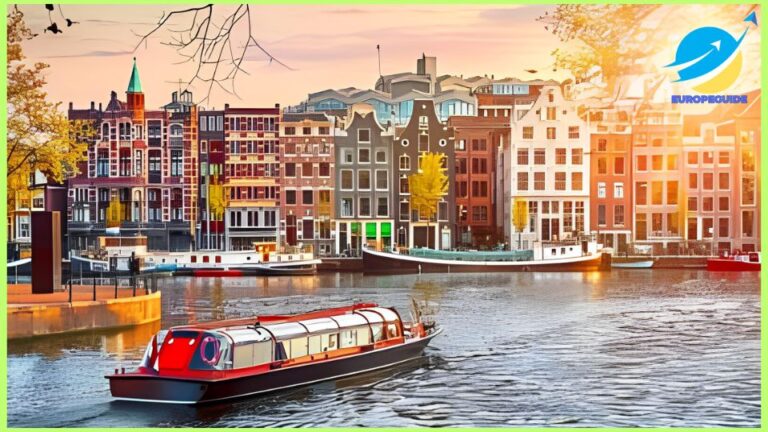Plan The Perfect Trip to Europe
Planning a trip to Europe can be an exciting and rewarding experience. From the historic cities to the breathtaking landscapes, Europe offers a wide range of attractions for every type of traveler. Whether you’re interested in exploring ancient ruins, lounging on beautiful beaches, or indulging in delicious cuisine, Europe has something to offer. However, planning the perfect trip to Europe requires careful consideration and preparation. In this guide, we’ll provide you with all the information you need to plan an unforgettable European adventure.
Introduction to Planning a Trip to Europe
Planning a trip to Europe begins with understanding what you want to get out of your experience. Are you interested in exploring the rich history and culture of the continent, or are you more drawn to its natural beauty? Do you prefer to visit bustling cities or quaint villages? By defining your interests and priorities, you can start to narrow down your options and create a travel plan that suits your needs.
Choosing the Best Time to Visit Europe
Europe experiences different climates and weather patterns throughout the year, so choosing the best time to visit is crucial. Summer is the most popular time for tourists, thanks to the warm weather and longer days. However, this also means larger crowds and higher prices. Spring and autumn can be great times to visit, with milder weather and fewer tourists. Winter can be cold, but it offers unique experiences like Christmas markets and winter sports.
Selecting the Perfect Destinations in Europe
Europe is home to a diverse range of destinations, each offering its unique attractions. From the romantic streets of Paris to the stunning landscapes of the Swiss Alps, there’s something for everyone in Europe. When planning your trip, consider your interests and priorities to choose the destinations that best suit your preferences.
Understanding the Visa and Travel Requirements
Before traveling to Europe, it’s essential to understand the visa and travel requirements for your destination. Depending on your nationality and the countries you plan to visit, you may need a visa or other travel documents. Research the requirements well in advance to ensure a smooth and hassle-free trip.
Planning the Itinerary for Your European Trip
Once you’ve chosen your destinations and sorted out the travel requirements, it’s time to plan your itinerary. Consider how much time you have for your trip and how you want to allocate it among your chosen destinations. Factor in travel time between cities and countries, as well as any special events or activities you want to experience.
Booking Accommodations in Europe
Accommodation options in Europe range from luxury hotels to budget-friendly hostels and everything in between. Consider your budget and preferences when choosing where to stay. Booking in advance is advisable, especially during peak tourist seasons, to secure the best deals and availability.
Transportation Options in Europe
Europe has an extensive and efficient transportation network, making it easy to travel between cities and countries. Options include trains, buses, ferries, and domestic flights. Consider the most convenient and cost-effective modes of transportation for your itinerary.
Exploring European Cuisine and Dining Options
One of the highlights of traveling in Europe is sampling its diverse and delicious cuisine. Each region has its specialties, so be sure to try local dishes wherever you go. From street food to Michelin-starred restaurants, Europe offers a wide range of dining experiences to suit every taste and budget.
Budgeting and Money Matters for Your European Trip
Budgeting is an essential part of planning any trip, and Europe is no exception. Consider the cost of accommodation, transportation, meals, activities, and souvenirs when creating your travel budget. It’s also important to have a plan for managing your money while abroad, including currency exchange and payment options.
Packing Tips and Essentials for Traveling in Europe
Packing light is key when traveling in Europe, especially if you plan to move between cities frequently. Pack versatile clothing and essentials like comfortable shoes, a travel adapter, and any medications you may need. Check the weather forecast for your destination and pack accordingly.
Safety Tips for Traveling in Europe
Europe is generally a safe destination for travelers, but it’s still important to take precautions. Be aware of your surroundings, especially in crowded tourist areas, and keep your belongings secure. Research local customs and laws to ensure you stay safe and respectful during your trip.
Making the Most of Your European Experience
Once you’ve arrived in Europe, it’s time to make the most of your experience. Be open to new experiences, try new foods, and immerse yourself in the local culture. Take plenty of photos to capture your memories, but don’t forget to put the camera down and enjoy the moment.
Planning the perfect trip to Europe requires careful consideration and preparation, but the rewards are well worth it. Whether you’re exploring historic cities, relaxing on beautiful beaches, or indulging in delicious cuisine, Europe has something to offer every traveler. By following the tips in this guide, you can plan an unforgettable European adventure that will create memories to last a lifetime.
FAQs About Planning a Trip to Europe
Q1: Do I need a visa to travel to Europe?
A1: The visa requirements for Europe depend on your nationality and the countries you plan to visit. Research the specific requirements for your trip well in advance.
Q2: What are some must-visit destinations in Europe?
A2: Some popular destinations in Europe include Paris, Rome, Barcelona, Amsterdam, and Prague, but there are countless other hidden gems to explore.
Q3: What is the best time of year to visit Europe?
A3: The best time to visit Europe depends on your preferences. Summer is popular for warm weather, while spring and autumn offer milder temperatures and fewer crowds.
Q4: How should I budget for a trip to Europe?
A4: When budgeting for a trip to Europe, consider the cost of accommodation, transportation, meals, activities, and souvenirs. Research prices in advance to estimate your expenses.
Q5: What should I pack for a trip to Europe?
A5: Pack light and versatile clothing, comfortable shoes, a travel adapter, any necessary medications, and essentials like a passport and travel insurance.
Planning the perfect trip to Europe requires careful consideration and preparation, but the rewards are well worth it. By following the tips in this guide and doing thorough research, you can create an itinerary that suits your interests and ensures a memorable experience. So, start planning your European adventure today and get ready for an unforgettable journey!







